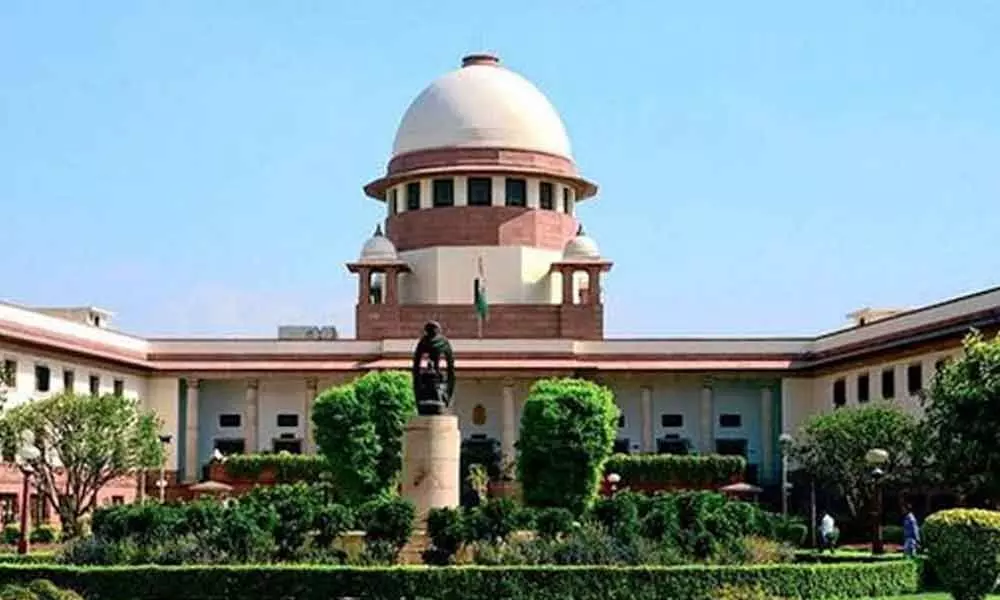Live
- SIT focuses on irregularities in quality ghee supply to TTD
- Take Maha win as inspiration, forget bypoll defeat: BJP chief
- Former Makthal MLA Chittem Rammohan Reddy Taken into Custody Amid Protests Concerns
- Man stabs lover in apartment, spends day with the corpse
- Pawan appeals for road-over-bridge at Pithapuram
- Pawan presents wishlist to Union ministers
- CM Naidu proposes iconic Deep tech building in Amaravati
- SFI activists protest over Sambhal killings
- Gurukul school observes Constitution Day
- Constitution belongs to every Indian: Haryana Guv Dattatraya
Just In
Don't issue notice on challenge to Places of Worship Act, Supreme Court urged


Supreme Court
After the Jamiat Ulema-i-Hind, another Muslim body has moved the Supreme Court
New Delhi: After the Jamiat Ulema-i-Hind, another Muslim body has moved the Supreme Court, urging it not to issue notice on a plea filed by a Hindu body challenging the constitutional validity of The Places of Worship (Special Provisions) Act, 1991, which provides for maintaining the existing "religious character" of holy structures as on August 15, 1947.
The Peace Party of India, in an application, contended that if the plea is entertained, it will open flood gates of litigation against countless mosques in the country, and the religious divide from which the country is recovering in the aftermath of the Ayodhya dispute will only be widened.
A PIL filed was filed by 'Vishwa Bhadra Pujari Purohit Mahasangh' seeking directions from the apex court to declare Section 4 of the 1991 Act as ultra vires and unconstitutional.
The petitioners' contentions gain significance in the case of Kashi and Mathura where two disputed mosques stand. The law does not allow the conversion of a temple into a mosque and vice versa.
The petition filed by the Jamiat Ulema-I-Hind, opposing the Hindu body's plea, also urged the top court not to issue notice in the matter.
"It is submitted that even issuance of notice in the present matter will create fear in the minds of the Muslim Community with regard to their places of worship, especially in the aftermath of the Ayodhya dispute and will destroy the secular fabric of the nation," it said, terming the plea an attempt to open the litigation route on disputed religious structures other than the Ram Janmabhoomi in Ayodhya.
"Section 4 of the Places of Worship Act, prevents members of the Hindu community from reclaiming those places of worship, which according to the petitioners were Hindu places of worship but were allegedly converted by Muslim invaders... it is apparent that the present petition seeks to indirectly target places of worship which are presently of Muslim character."
The Jamiat had contended that the top court itself noted that the Places of Worship (Special Provisions) Act, 1991 protects and secures the fundamental values of the Constitution. "It was further observed that it was a legislative instrument designed to protect the secular features of the Indian polity, which is one of the basic features of the Constitution. The Places of Worship Act is intrinsically related to the obligations of a secular state. It reflects the commitment of India to the equality of all religions," added the plea.
The Muslim bodies have also urged the apex court to allow them to implead themselves in the matter.

© 2024 Hyderabad Media House Limited/The Hans India. All rights reserved. Powered by hocalwire.com






